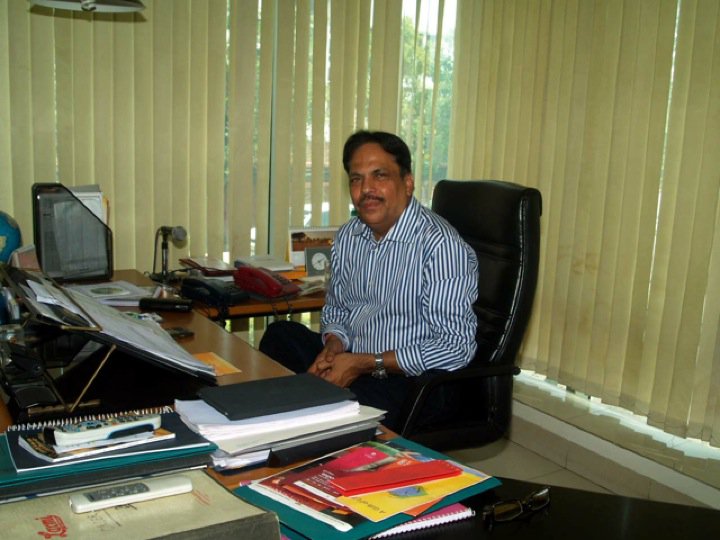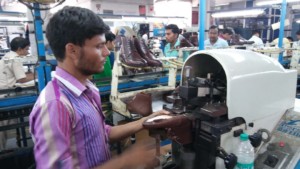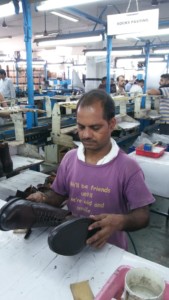



Interview with Shri. Puran Dawar, Regional Chairman, North – CLE and Chairman – Dawar Group
Dawar Group was started in 1977 with retail business in footwear and it was only in 1983 that they started manufacturing under the brand name of Shoe Style . Dawar Footwear Industries was started in 1986. Since then, Dawar Group has been exporting to many countries besides catering to the domestic market. Let’s learn more about the company, in this interview with Shri. Puran Dawar, Regional Chairman, North – CLE and Chairman – Dawar Group
Leather industry and business in Agra
Initially, leather industry in Agra was treated as catering to lower end market. But, we consciously wanted to change this image about Agra and develop a modern industry with latest equipment and infrastructure. We emphasize on compliance with standards for conservation and preservation of environment because we believe that you can’t grow without being clean, environment-friendly and socially responsible.
When you want to expand and enter into exports market, the first important step is to build relations through international networks, then, remain focused on quality of the products, this is essential for long term sustainability of your business. In fact, quality is the top most criterion for your success, along with compliance and presentation of your products to the international clients.

Another critical element of the business pertains to timely payment whether they are your employees or suppliers. At Dawar Group, we have a rule for releasing the payments on the 7th of every month and this has enhanced our credibility among the stakeholders. Automatically, this rule takes care of our receivables. We also maintain a contingency amount for helping our suppliers who are in real in need.
Importance of skills in leather industry
Skills are the key for the growth and prosperity of any industry. It may be a blessing in disguise that Agra has always had traditionally skilled workforce since the Moghul era. These workers have marked their presence in many parts of India but the problem is that their technical and artistic skills are not supported by formal education and training. Since there was no alignment between the two, we have filled the gap by collaborating with institutions like GLI ,CFTI and FDDI or B.Tech course in Dayalbagh University that offer courses to fill the gap.
 Need for cluster-centric education
Need for cluster-centric education
I strongly believe in introducing cluster-centric industrial education to transform India through skills. This could be a true game changer if we take clusters like Agra that have tremendous potential for footwear and tourism industry and introduce these subjects in schools as a part of the regular curriculum from class 7 or 8. With this, even if the kids dropout, they can be employable and get a job to sustain themselves. They can also become entrepreneurs.
The leather industry is not able to scale since it has remained a family-centric business. We need masses to get attracted to this industry. Initiatives like Startup India have not impacted the industry either.
I feel happy to say that, even with the traditional workforce, Dawar Group has pioneered lean manufacturing, by creating an assembly line. Earlier, the industry was totally unorganized in Agra, for cleaning, washing and waxing shoes no specific skills are required; finishing used to be absolutely tradition and unprofessional, we were the first ones to use brushing machines.
Apprentices and upskilling
Earlier Apprenticeship Act was a bit ambiguous. At Dawar, we always had trainees who constituted the 10% to 20% of extra workforce. They would learn by observing, practicing and thus move up the career ladder. In fact, our supervisors have all grown in the company; we always tell our new recruits that they should learn, transfer the skills to other and move up the ladder. We tell them to teach their jobs to others and that’s how they grow in the organization. I understand that NAPS is an employer-friendly scheme and many companies should adopt it since the government offers financial support as well.
 Focus on training and education through Skill India
Focus on training and education through Skill India
Skill India mission should avoid duplication of efforts and programs, it should use existing school infrastructure. For example, MSME can create tool rooms and convert one class into tool room. Mass skilling can only be a part of mass education There are 23 focused products in the leather sector under Make in India scheme; if we prepare the curriculum for them we will win the game!
Advice to aspiring entrepreneurs
This industry has a huge potential for entrepreneurship. Today, India’s share in the global market is only 3% and this shows the scope for growth. It is a not a capital intensive industry with very limited funds you can start the factory you can even start with just one line of production! For instance, stitching machines don’t cost a lot, it’s not a huge investment. With Rs. 1 crore you can manage right from cutting to finishing work. With this, you can employ 200 people directly or directly and as a startup this is a great opportunity for job creation if the person has good knowledge about leather products. Local jobs will also control migration and this ties up with the principle of cluster-centric education.
Dawar Group is committed to the growth of Agra, our country and our society. We are firmly placed in generating employment and earning foreign exchange for the country through our exports.